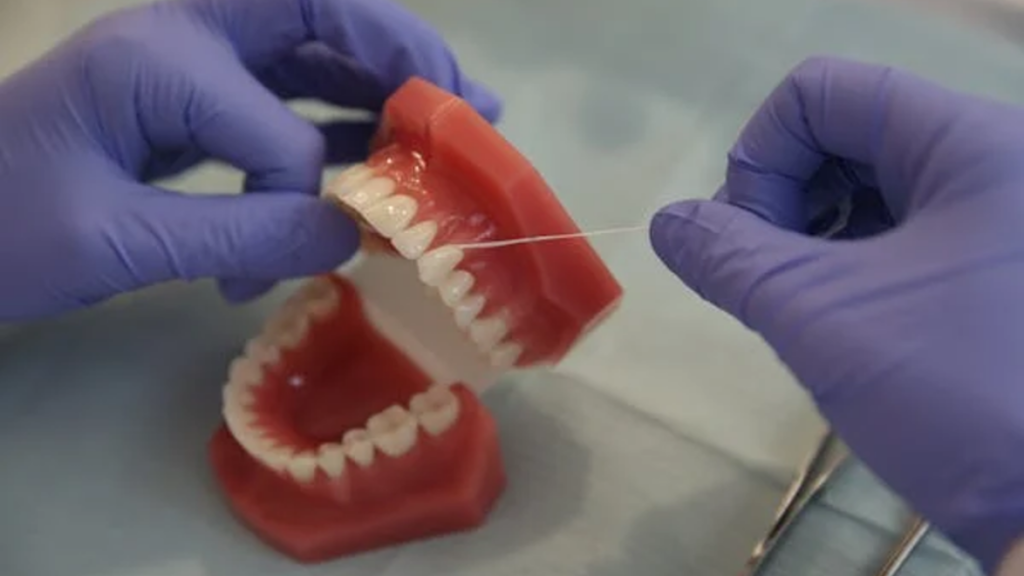Trying to eat, speak, and maintain your self-esteem can be challenging if you’re dealing with broken, missing, or decayed teeth. Fortunately, there’s a solution that will make all these problems a thing of the past.
It’s not uncommon for many people to invest in the dentures Mornington dentists offer to replace missing teeth. If you and your dentist have been discussing the possibility of dentures, you may be curious about the care that these new teeth may require.
What are Dentures?
Essentially, dentures are removable replacements for all or partially missing teeth. Dental technicians make dentures from materials such as resin, acrylic, porcelain, and even nylon.
The most common types of dentures are full and partial dentures, and this is how they compare:
- Full dentures: These are also commonly referred to as complete dentures and these replace all the teeth in your mouth. They rest on top of your gums and rely on the roof of your mouth or lower jawbone for support. In some cases, you may need to use denture adhesive to keep the dentures in place. Dentures are usually removed at night to give the gums a rest and also to soak in a cleaning solution.
- Partial dentures: As the name suggests, partial dentures replace several missing teeth in both the top and bottom jaw. Similar to full dentures, the partial options rely on underlying bones and gums for support. Partial dentures feature special clasps that hook around your natural teeth to provide stability and keep them in place.
Proper Care is Crucial
If you’re going to invest in dentures, you’re going to want them to last as long as possible. This only happens with proper care and maintenance. We’ve shared a few essential tips to help you get started with your denture care.
1. Clean Your Dentures Daily
The number one rule to keep in mind when it comes to dental care is to clean them every day, as though they are real teeth. Just because they’re synthetic, doesn’t mean that certain foods can’t damage them.
Keep in mind that bacteria on your dentures can lead to inflammation in your mouth, so keeping them clean is key. Do this by using a non-abrasive cleaner such as the specialized denture cleaners you can buy from your local grocery store. Apply the cleaner with a soft-bristled toothbrush and rinse them thoroughly after brushing.
2. Invest in a Denture Soak
Another easy way to care for your dentures involves soaking them overnight. This process will not only keep them clean but moist as well which ensures that they don’t warp or crack. Simply fill a small glass halfway with warm water. Add a denture soak solution to the water to eliminate bacteria. Soak the dentures in this solution for at least eight hours. Brush and rinse your dentures before using them the next day.
3. Always Handle Dentures With Care
Dentures may feel strong, but it’s important to point out that they can break if you accidentally drop them. Repairing or replacing can be quite costly, so rather make the effort to treat them with care.
Our experts recommend standing over a basin of water or a folded towel when handling your dentures to ensure they don’t fall on a hard surface. It’s also a good idea to get a container to keep them in if you’re not going to put them in a glass of water at night.
4. Avoid Damaging Foods
Having synthetic teeth that seem strong and unbreakable may initially lead you to believe that you can eat and drink anything you want. However, hard or sticky foods can cause the denture plates to move around which can also lead to breakages.
The trick here is to avoid hard foods or cut them into smaller, bite-sized chunks. Be sure to chew gently and slowly in the first days of wearing your dentures. This will help you get used to them and will also give you an idea of what you can and can’t eat.
It’s also worth pointing out that some foods such as beetroot can stain your dentures. Always soak your dentures in denture solution after a meal that contains staining foods to reduce the risk of yellowing.
5. Visit Your Dentist Regularly
While it’s true that there may be some getting used to in the early days of wearing dentures, they should ultimately feel and work comfortably. There shouldn’t be any rubbing against your gums, moving around when you eat, or causing you pain. If you experience any of these symptoms, be sure to discuss them with your dentist.
Having dentures doesn’t mean that you no longer need to see a dentist. Routine visits will allow your dentist to check your dentures and make sure they are functioning correctly. It’s also a good idea for the dentist to check your mouth to ensure that your dentures aren’t causing damage by moving around too much.
Final Thoughts
It’s essential to take care of your dentures if you want them to last as long as possible. By following the tips we’ve shared, you’ll be able to use your dentures to their full benefit for many years to come. Speak to your dentist for additional tips tailored to your specific needs.




